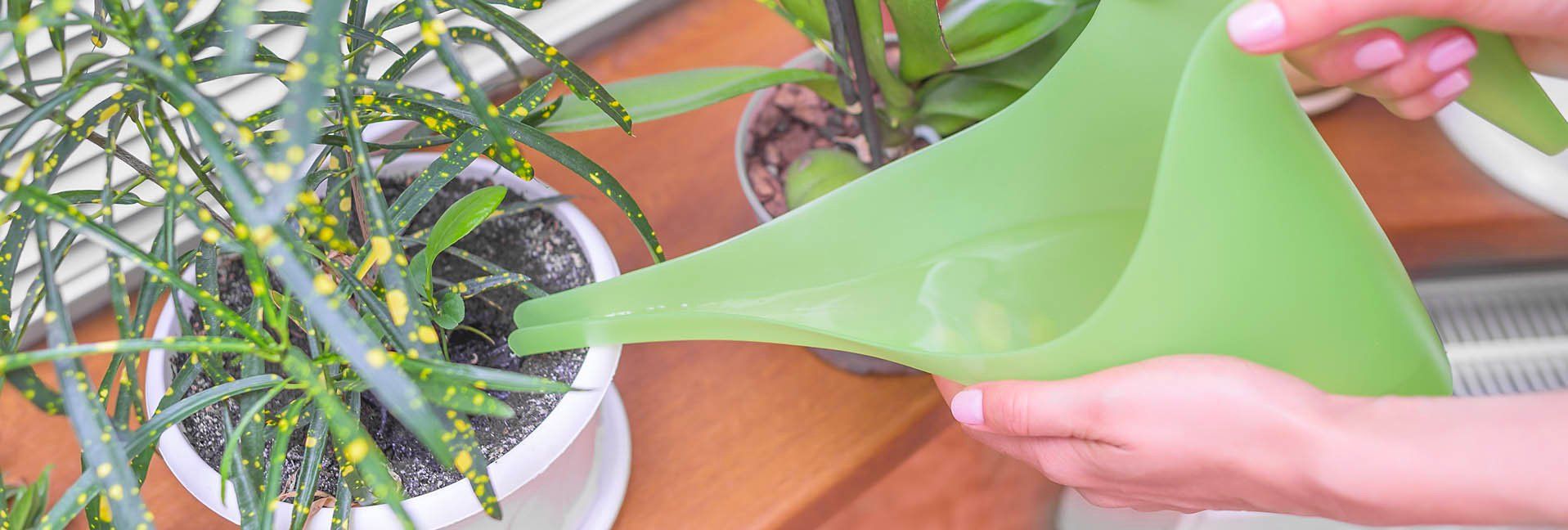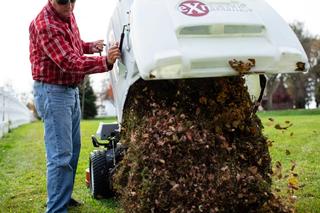Keep Indoor Plants Healthy and Happy this Winter


Anyone who has grown houseplants has probably dealt with fungus gnats, aphids, spider mites and other insects that can infest indoor plants. In addition to insect pests, dry air conditions and low light levels can be challenging for houseplants during the winter months. But keeping indoor plants healthy isn’t difficult—it just requires a little tender loving care, plant fertilizer, and some natural pest control.
The fungus gnat problem
One of the most common insect pests to plague potted plants is the fungus gnat. Adult fungus gnats are tiny flying pests that can swarm like an annoying black cloud whenever an infested houseplant or outdoor potted plant is moved.
Fungus gnats (Bradysia species) are small, mosquito-like insects that commonly infest the growing medium in which houseplants and outdoor potted plants grow. Often, when outdoor plants are brought indoors for the colder months, fungus gnats (and other pests) harbored in the potting mix are also carried indoors, where they can quickly infest the soil of other houseplants.
Fungus gnats can be difficult to control. They thrive in moist potting soil, where they lay their eggs. After the eggs hatch, fungus gnat larvae live in the top two to three inches of the potting soil. In the larval stage, the fungus gnat maggots can cause plant damage by eating plant roots. After about two or three weeks, the fungus gnat maggots pupate in the potting soil to become the tiny black adult gnats that fly erratically when a potted plant is moved.
Letting the potting soil dry out between watering helps control fungus gnats. But sometimes more aggressive measures are needed to control the pests. Fortunately, there are now natural, non-chemical solutions that kill fungus gnat infestations.
Kill fungus gnat larvae with BTI
Because fungus gnats are closely related to mosquitoes, fungus gnat larvae are effectively killed by BTI—the naturally occurring bacterium that is deadly to mosquito larvae. BTI, short for Bacillus thuringiensis israelensis, is deadly to mosquito larvae and fungus gnat larvae but harmless to other living things. The bacterium is nature’s way of keeping fungus gnat and mosquito populations down, but it does not harm animals, fish, birds, plants, pets or people.
BTI is the active ingredient in top-selling Mosquito Bits, which is approved for the control of fungus gnats. To kill fungus gnat larvae, simply shake the granular Mosquito Bits onto the potting soil in houseplants and other container-grown plants—including vegetables and herbs. Mosquito Bits can also be mixed with potting soil prior to planting. When the plants are watered, the BTI in the Mosquito Bits will be released. Fungus gnat larvae will then feed on the BTI and die. An eight-ounce container of Mosquito Bits is available for about $12 at local garden center stores and at
SummitResponsibleSolutions.com.
Horticultural oil to the rescue
There is also an environmentally friendly way to kill infestations of adult fungus gnats, aphids, spider mites, scale and other insects that can infest indoor plants. A lightweight horticultural oil, such as organic Summit Year-Round Spray Oil, is an effective way to kill insects on houseplants.
Unlike many other pesticides that kill insects with toxic chemicals, horticultural oil literally smothers insects to death. The oil spray blocks an insect’s breathing holes (called spiracles), causing insects to die from asphyxiation. Just spray the horticultural oil on infected plants, and try to cover the insect pests with the oil.
Summit Year-Round Spray Oil (a 32-ounce spray bottle is available at from Summit for under $10) can be used any time during the year because it won’t harm plant buds, shoots or leaves. This lightweight oil has no odor, and it will effectively control pests on even sensitive plants such as tropical houseplants, citrus trees and ferns. Horticultural oil kills fungus gnats plus a wide variety of insect pests including aphids, whiteflies, spider mites, mealybugs, scale, thrips, lace bugs and more. Unlike chemical pesticides which can become less effective after repeated use, there is no known build-up of insect resistance to horticultural oil sprays.
Optimum growing conditions
Many indoor plants are native to tropical climates, where there is ample rainfall and plenty of humidity. Because these plants are used to steady moisture, they are not always happy in the dry air inside many homes. To increase the humidity, mist the air around plants periodically. Also, keep the potting soil well watered—but not drenched. Most plants appreciate a thorough watering followed by a period of drying out.
Nearly all potted plants also benefit from a regular feeding of plant food. Many water soluble fertilizers are available at garden centers and hardware stores. Mix the fertilizer with water according to the package directions, and give plants a nice soaking. You’ll notice that flowering houseplants respond particularly well to regular applications of fertilizer.
One more thing: make sure your houseplants get plenty of light during the winter months. Days are shorter, so they might need to be moved closer to a window so they get the daylight they need for optimum health.
Tags:Seasonal Living

Acreage Life is part of the Catalyst Communications Network publication family.
















